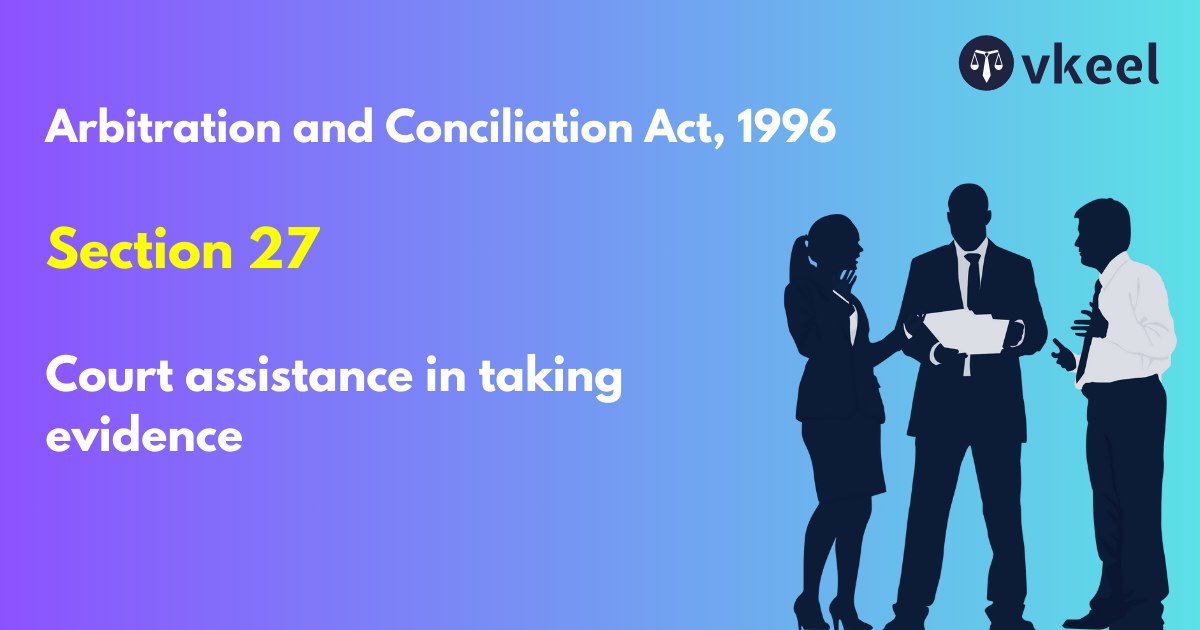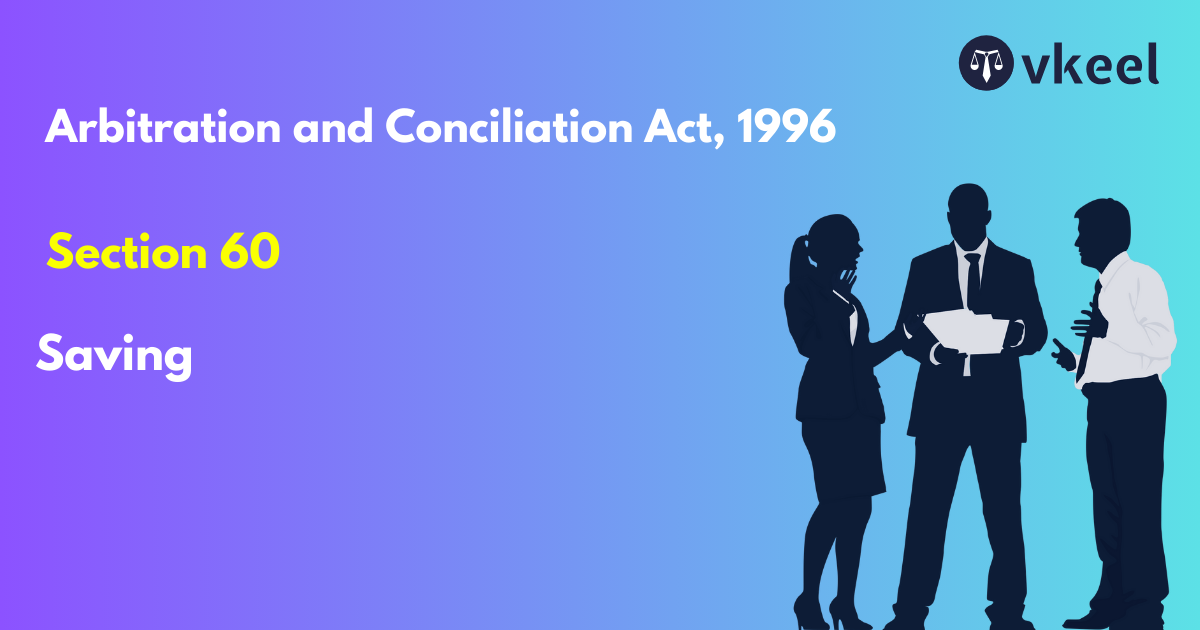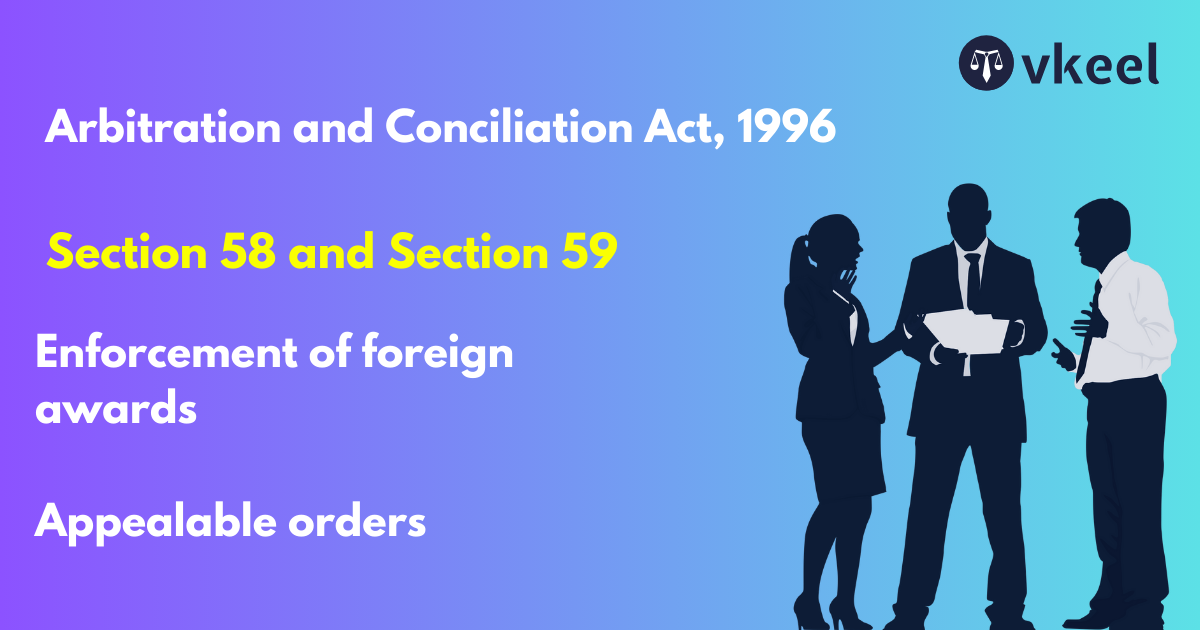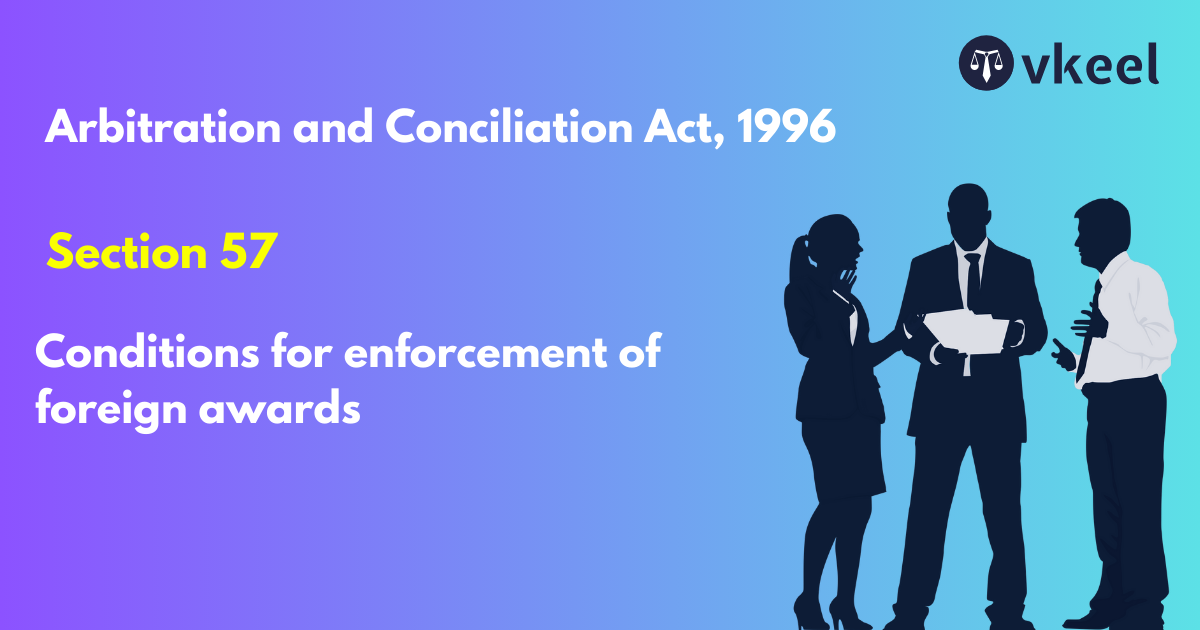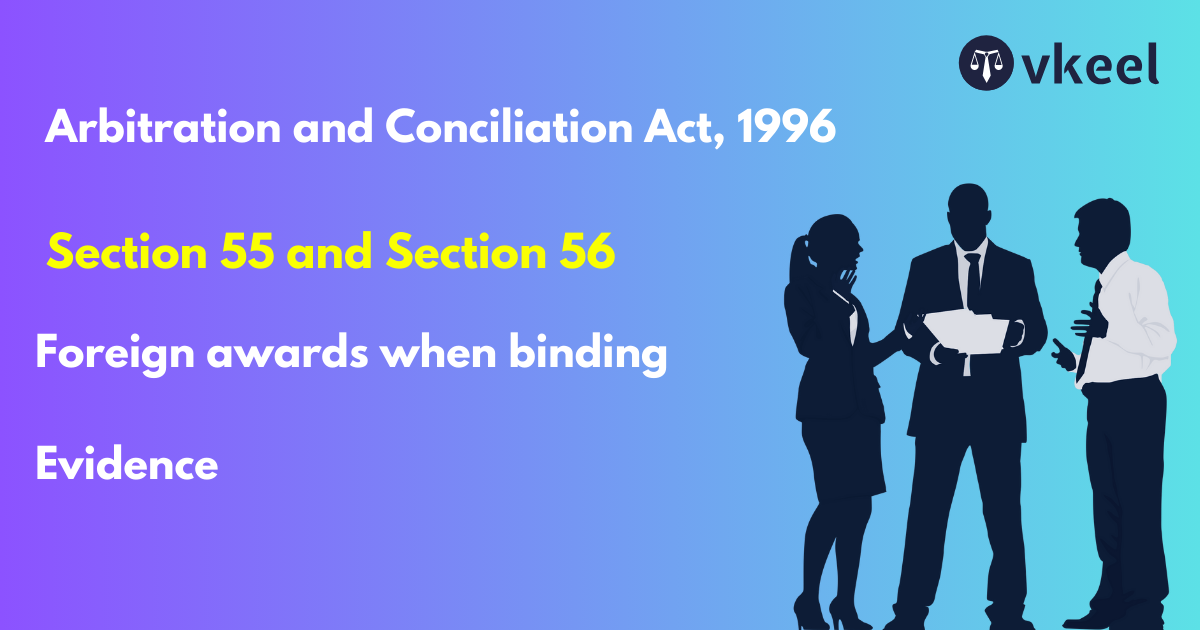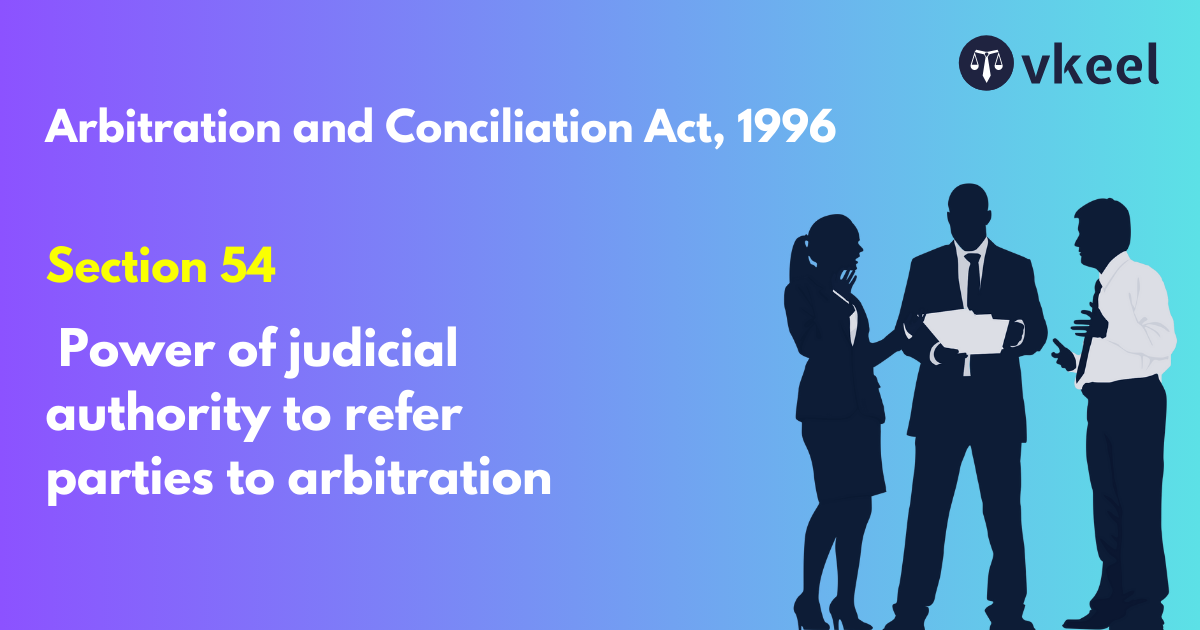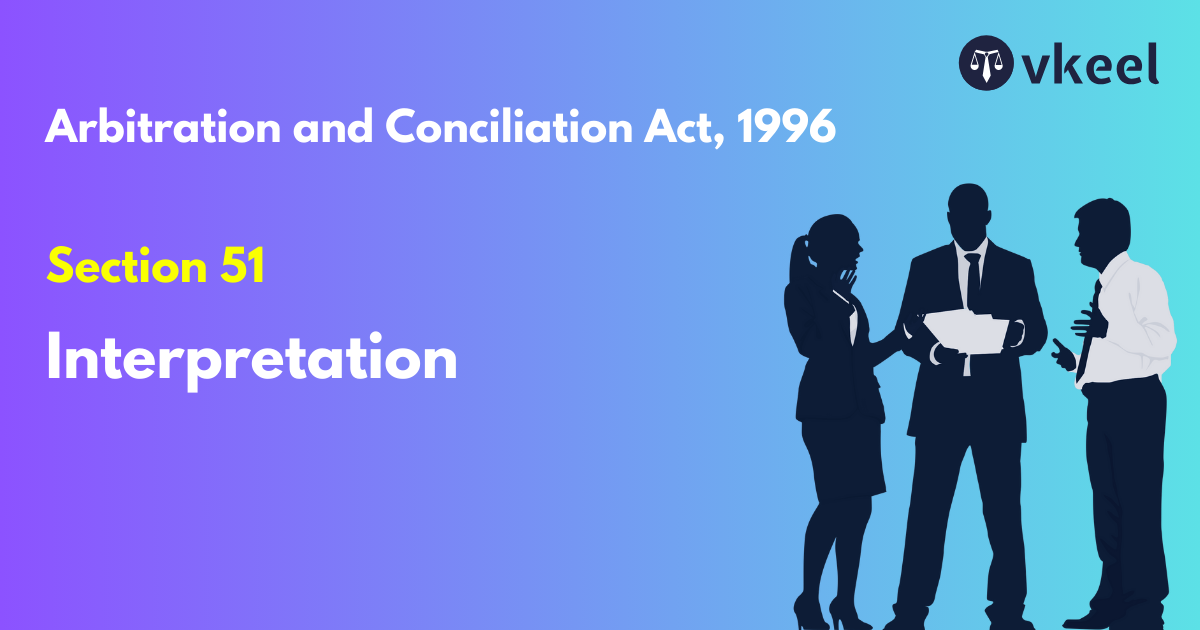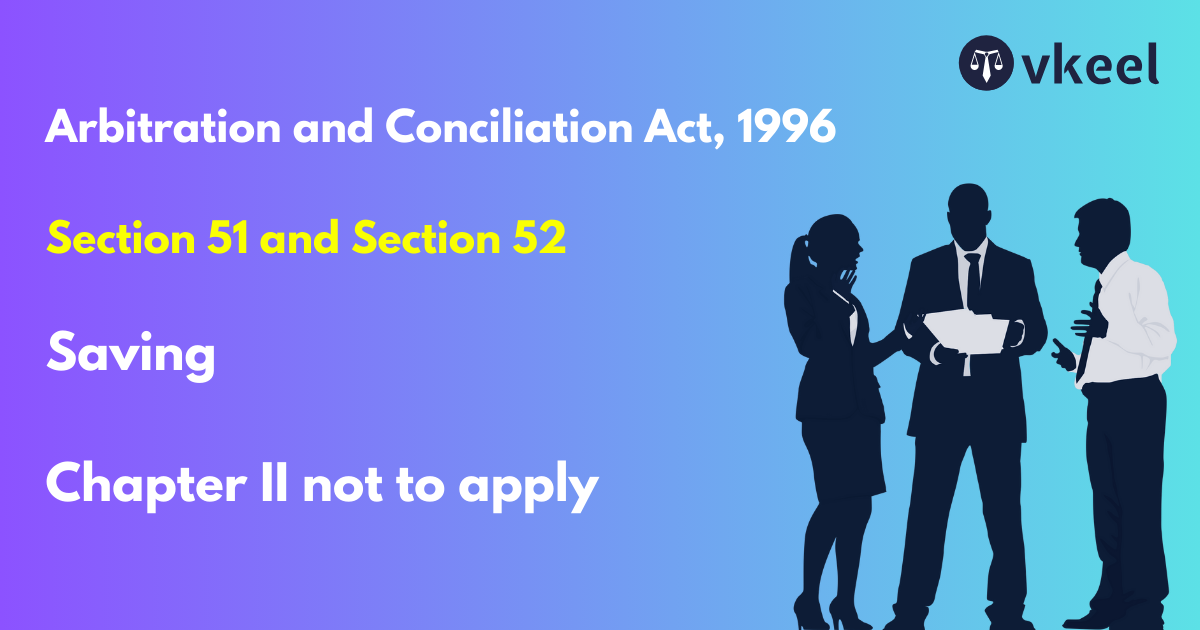Section 27: Arbitration and Conciliation Act, 1996
By Nivedita Dhiman
Table of Contents
Introduction of Section 27
Section 27 of the Arbitration and Conciliation Act talks about the appointment of arbitrators and explains the process in which parties have a fair chance to choose the people who will adjudicate the professional matters. One or three arbitrators can be appointed based on the agreement between the parties and the set of rules listed.
Arbitrators appointed to resolve the disputes are the professionals who meet certain qualifications and act independently and impartially thereby ensuring clarity and fairness in the process of arbitration. This section also tells that judicial intervention is allowed if disputes arise because of the appointment of arbitrators.
Section 27 of arbitration and conciliation act
Court assistance in taking evidence
(1) The arbitral tribunal, or a party with the approval of the arbitral tribunal, may apply to the Court for assistance in taking evidence.
(2) The application shall specify—
(a) the names and addresses of the parties and the arbitrators;
(b) the general nature of the claim and the relief sought;
(c) the evidence to be obtained, in particular,—
(i) the name and address of any person to be heard as witness or expert witness and a statement of the subject-matter of the testimony required;
(ii) the description of any document to be produced or property to be inspected.
(3) The Court may, within its competence and according to its rules on taking evidence, execute the request by ordering that the evidence be provided directly to the arbitral tribunal.
(4) The Court may, while making an order under sub-section (3), issue the same processes to witnesses as it may issue in suits tried before it.
(5) Persons failing to attend in accordance with such process, or making any other default, or refusing to give their evidence, or guilty of any contempt to the arbitral tribunal during the conduct of arbitral proceedings, shall be subject to the like disadvantages, penalties and punishments by order of the Court on the representation of the arbitral tribunal as they would incur for the like offences in suits tried before the Court.
(6) In this section the expression “Processes” includes summonses and commissions for the examination of witnesses and summonses to produce documents.
Landmark Judgements of Section 27
Harinarayan G Bajaj vs Sharedeal Financial Consultants Pvt Ltd, 2003
Every order or decision in an arbitration proceeding is not an award. An order or decision in the course of proceedings which are continuing and in respect of which no remedy is provided in the act would normally be challenged while challenging the award under section 34. But an order rejecting the application under 27 is neither a decision nor an order and in no case can it be taken to be an interim award.
Delta Distilleries Ltd vs United Spirits Ltd, 2014
The Supreme Court has held that particulars contained in any tax return or statement made by a party, or document produced therewith are confidential, and no court shall pass any order requiring the government or a government servant to produce any such statement, document or return. But these provisions contain a bar only against the government officers from producing the documents mentioned therein.
GAIL Ltd Fibcom India Ltd, 2013
While the employee of the respondent was being cross-examined by the petitioner, respondent moved an application before the arbitrator seeking leave for change of its witness as said witness resigned from the employment of the respondent and he was not available for further deposition of cross-examination. The arbitrator permitted to file application under this section to secure presence of the witness for his further cross-examination. The court permitted the petitioner to be summoned for further cross-examination.
Conclusion of section 27
The above-mentioned section 27 does not empower the court to determine the admissibility, relevancy, materiality and weight of any evidence. The only requirement for the court is to ensure that it is within its competence and according to its rules on taking evidence. An arbitrator who has to act impartially could not seek the advice of a lawyer without referring the matter to the parties themselves. This section helps to navigate the process in which the arbitrators are selected and makes sure that the disputes are resolved.
Disclaimer:
The information provided in the article is for general informational purposes only, and is not intended to constitute legal advice or to be relied upon as a substitute for legal advice. Furthermore, any information contained in the article is not guaranteed to be current, complete or accurate. If you require legal advice or representation, you should contact an attorney or law firm directly. We are not responsible for any damages resulting from any reliance on the content of this website.

